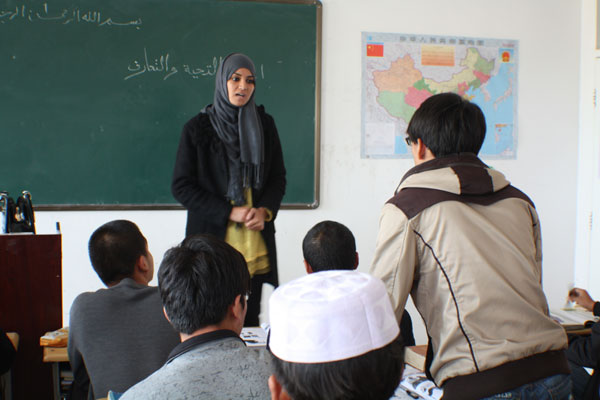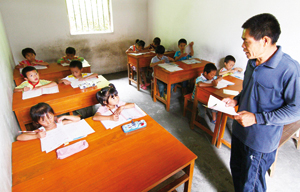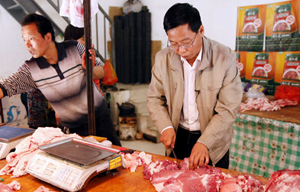Arabic language opens doors for Chinese
 |
|
Tunisian teacher Nabila Ahmed (pictured) and her sister Ghada are among the three foreign teachers at Ningxia Muslim International Language School.[Photo/China Daily] |
Students in the Ningxia Hui autonomous region are taking advantage of their Muslim background to do business with the Middle East. Mu Qian reports.
In Northwestern China's Ningxia Hui autonomous region, Muslims find knowledge of the Arabic language not only useful in prayers, but also helpful to secure jobs.
"I'm glad that my study in Arabic language enables me to engage in international trade, which I really like," says Ma Xu, 23, a graduate of the Tongxin Arabic School who now works for a Palestinian company in Yiwu, East China's Zhejiang province.
Tongxin, the Chinese county with the largest population of Hui Muslims, is located in arid central Ningxia. Like most people in the poverty-stricken region, Ma felt at a loss about what to do after finishing middle school. While the possibility of finishing high school and getting into university was flimsy, becoming a migrant worker with no special skills did not promise much of a future.
He chose to go to the Tongxin Arabic Language School. His earlier learning of the Arabic alphabet, when his grandfather taught him the Quran, helped him to pick up the language quickly.
In the third year of Arabic school, Ma went to Yiwu to intern at a trade company. He liked it and decided to stay in the city. "There are so many alumni in Yiwu. We have online chat groups, and help each other to find jobs," he says.
Apart from female students who do not want to work away from home, most of Ma's classmates end up in Yiwu or Guangzhou, the two largest bases of small commodities trade in China.
Businessmen from the Middle East make up a large portion of the people who come to shop for small commodities in wholesale, and Arabic interpreters are in high demand. In Yiwu and Guangzhou, most of the Arabic translators are Hui Muslims from Northwestern China, especially Ningxia.
Arabic businessmen buy not only daily necessities like clothes and shoes, but also religious items like beads and audio players of the Quran, which are made in China but find big markets in the Middle East.
Ma's work includes helping clients with goods purchase, business transactions and customs declaration.
























